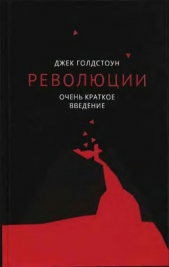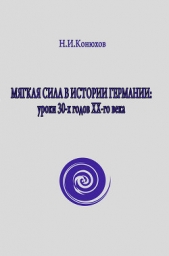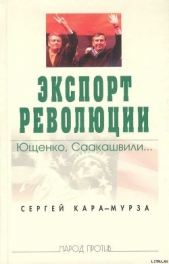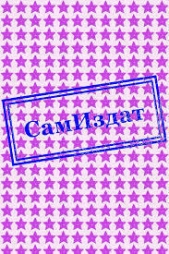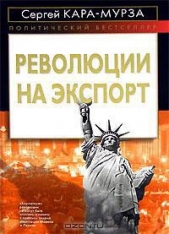«Мягкая сила», «цветные революции» и технологии смены политических режимов в начале XXI века
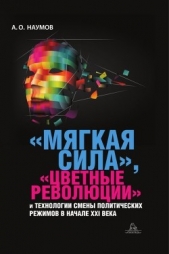
«Мягкая сила», «цветные революции» и технологии смены политических режимов в начале XXI века читать книгу онлайн
Монография посвящена проблеме трансформации политических режимов в странах Восточной Европы, постсоветского пространства и Северной Африки в 2000–2014 годах. Основной акцент сделан на анализе технологий «мягкой силы», которые использовались США и их союзниками для осуществления государственных переворотов в Сербии, Грузии, Украине, Киргизии, Тунисе, Египте и вновь на Украине. Организованные Западом с помощью новейших приемов геополитической инженерии «цветные революции» привели к драматическим последствиям как для системы глобального управления, так и для внутреннего развития указанных стран. Международные кризисы, перманентная политическая турбулентность, социально-экономический коллапс, утрата реального суверенитета — таковы основные итоги «цветных революций».
Внимание! Книга может содержать контент только для совершеннолетних. Для несовершеннолетних чтение данного контента СТРОГО ЗАПРЕЩЕНО! Если в книге присутствует наличие пропаганды ЛГБТ и другого, запрещенного контента - просьба написать на почту [email protected] для удаления материала
216. Fundamental Flaws in Ukraine’s Presidential Election Process Subvert its Legitimacy. Press Release. November 23, 2004 // National Democratic Institute for International Affairs. URL: https://www.ndi.org/ files/1774_uk_press_l 12304.html.
217. Gelvin J.L. The Arab Uprising: What Everyone Needs to know. Oxford, 2012.
218. Gillis A. Foreign Aid and Democratization: The Impact of Western Assistance on the Orange Revolution. Budapest, 2013.
219. Hale H.E. Democracy or autocracy on the march? The colored revolutions as normal dynamics of patronal presidentialism // Communist and Post- Communist Studies. 2006. Vol. 39. № 3.
220. Helvey R.L. On Strategic Nonviolent Conflict: Thinking About the Fundamentals. Boston, 2004.
221. Howard Ph. The Arab Spring’s Cascading Effects // Pacific Standard. Feb. 24, 2011. URL: http://www.psmag.com/business-economics/the-cascading-effects-of-the-arab-spring-28575.
222. Huntington S.P. Political Order in Changing Societies. New Haven, 1968.
223. In quotes: Reaction to Tunisian crisis // BBC News. URL: http:// www.bbc.com/news / world-africa-12197681.
224. International Election Observation Mission, Statement of Preliminary Findings and Conclusions // ОБСЕ. Официальный сайт. URL: http:// www.osce.org/documents/odihr/2004/ll/3811_en.pdf.
225. Jones S. Georgia’s «Rose Revolution» of 2003: Enforcing Peaceful Change // Civil Resistance and Power Politics: The Experience of Nonviolent Action from Gandhi to the Present. Ed. by Roberts A., Garton T. Oxford & New York, 2009.
226. Kandelaki G. Georgia’s Rose Revolution. A Participant’s Perspective // United States Institute of Peace. Special Report. July 2006. URL: http://www.usip.org/sites/default/files/srl67.pdf.
227. Karatnycky A. The Fall and Rise of Ukraine’s Political Opposition: From Kuchmagate to the Orange Revolution // Revolution in orange: the origins of Ukrainevs democratic breakthrough. Ed. by A. Aslund, M. McFaul. Washington, 2006.
228. Karumidze Z., Wertsch J. Enough! The Rose Revolution in the Republic of Georgia. N.Y., 2005.
229. Kassim S. Twitter Revolution: How the Arab Spring Was Helped By Social Media // Policymic. 3 July, 2012 // URL: http://www.policymic. com/articles/10642/twitter-revolution-how-the-arab-spring-was-helped-by-social-media.
230. Kirkpatrick D., Sanger D. A Tunisian-Egyptian Link That Shook Arab History // The New York Times. Feb. 13. 2011. URL: http://www. nytimes.com/2011/02/14/world/middleeast/14egypt-tunisia-protests. html?pagewanted=all&_r=0.
231. Kuzio T. Everyday Ukrainians and the Orange Revolution // Revolution in orange: the origins of Ukrainevs democratic breakthrough. Ed. by A. Aslund, M. McFaul. Washington, 2006.
232. LeBor A. Milosevic. New Haven, 2005.
233. Lynch M. The Arab Uprising. The Unfinished Revolutions of the New Middle East. N.Y., 2012.
234. Lynn W. Defending a New Domain: The Pentagon’s Cyberstrategy // Foreign Affairs. Sept/Oct. 2010.
235. Marshall T. Shadowplay. Belgrade, 2003.
236. McFaul M. Ukraine Imports Democracy. External Influences on the Orange Revolution // International Security. Vol.32. № 2 (Fall 2007).
237. Middle East Initiative Partnership. About Us. URL: http://www. medregion.mepi.state.gov/mepi/about-us.html.
238. Middle East Partnership Initiative Offers Tools for Supporting Reform, but Project Monitoring Needs Improvement // United States Government Accountability Office. August 2005. URL: http://www.gao. gov/new.items/d05711.pdf.
239. Mitchell L. Georgia’s Rose Revolution // Current History. Vol.103. No.675 (October 2004).
240. Motyl A.J. Three Years After: Theoretical Reflections on Ukraine’s Orange Revolution // Harvard International Review. Volume 29. Issue 4. Publication Year 2008.
241. Nichol J. Coup in Georgia [Republic]: Recent Developments and Implications // CRS Report for Congress. December 4, 2003. URL: https:// www.justice.gov/sites/default/files/eoir/legacy/2013/06/13/Coup%20 in%20Georgia.pdf.
242. Nichol J. Coup in Kyrgyzstan: Developments and Implications // CRS Report for Congress. April 14, 2005. URL: https://www.fas.org/sgp/ crs/row/RL32864.pdf.
243. Nye J.S. “Soft Power” // Foreign Policy. 1990. № 8.
244. Nye J.S. Bound to Lead: The Changing Nature of American Power. N.Y., 1990.
245. Nye J.S. Donald Rumsfeld and Smart Power // URL: http://www. projectsyndicate.org/commentary/nye32.
246. Nye J.S. Soft Power: The Means to Success in World Politics. N.Y., 2004.
247. OSCE. Office for Democratic Institutions and Human Rights. Parliamentary Elections, the Kyrgyz Republic: Statement of Preliminary Findings and Conclusions. The Kyrgyz Republic Parliamentary elections 27 February and 13 March 2005 OSCE/ODIHR Election Observation Mission Final Report. URL: http://www.osce.org/odihr/elections/ kyrgyzstan/14835?download=true.
248. Oweidat N., Benard C., Stahl D., Kildani W., O’Connell E., Grant A.K. The Kefaya Movement. A Case Study of a Grassroots Reform Initiative. URL: http://www.rand.org/content/dam/rand/pubs/ monographs/2008/RAND_MG778.pdf.
249. Peace Corps. About Us. URL: http://www.peacecorps.gov/about.
250. Pope H. Pro-West Leaders In Georgia Push Shevardnadze Out // The Wall Street Journal. Nov. 24. 2003. URL: http://www.wsj.com/ articles/SB 1069507873431700.
251. Popovic S., Milivojevic A., Djinovica S. Nonviolent struggle. 50 crucial points. A strategic approach to everyday tactics. Belgrade, 2006.
252. Preliminary Statement of the NDI International Election Observer Delegation on Ukraine December 26, 2004. Repeat of the Presidential Runoff Election. December 27, 2004 // National Democratic Institute for International Affairs. URL: https://www.ndi.org/files/1787_uk_ statement_122704.html.
253. Promotion of the Fair and Open Election of 2004. International Renaissance Foundation. Официальный сайт // URL: http://www.irf. kiev.ua/filies/eng/news_381_en_pdf.pdf.
254. Reardon S. Was the Arab Spring really a Facebook revolution? // New Scientist. 13 April, 2012. URL: http://www. newscientist.com/article/ mg21428596.400-was-the-arab-spring-really-a-facebook-revolution.html.
255. Remarks by the President at Cairo University, 6-04-09 // The White House. Office of the press secretary. URL: https://www.whitehouse. gov/the-press-office/remarks-president-cairo-university-6-04-09.
256. Rising Democracy. Grassroot Revolutions // USAID. Official website. URL: http://www.usaid.gov/our_vvork/democracy_and_governance/ publications/pdfs/democracy_rising.pdf.
257. Sale R. Clinton’s Secret Wars: the Evolution of a Commander in Chief. N.Y., 2009.
258. Saleh L. Soft Power, NGOs, and the US War on Terror // Theses and Dissertations of the University of Wisconsin Milwaukee. 2012. December. URL: http://dc.uwm.edu/cgi/viewcontent.cgi?article=1069&context=etd.
